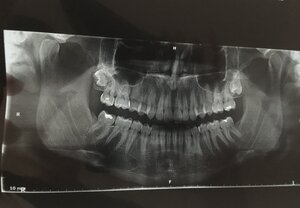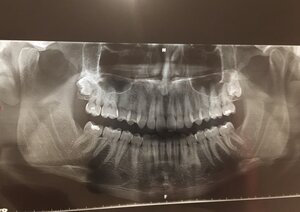- Sep 23, 2020
- 143
- Tinnitus Since
- 09/2020
- Cause of Tinnitus
- ETD, TMD, CI
Causes of TMJ. Includes muscle spasms from neck.
https://www.researchgate.net/public...r_Using_CBCT_Imaging_An_Exploratory_Study#pfa
Petrotympanic fissure provides direct
contact between the auricular cavity and the middle ear.
Often divided into petrotympanic or petrosquamous, the
petrotympanic fissure may be used by infectious pathogens
for a bidirectional transmission [38]. Moreover, the dis-
placement of anatomical structures in the temporoman-
dibular joint can cause a variety of symptoms associated with
otological dysfunctions. One of the multiple theories
attempting to explain the association between otological
symptoms and TMD assumes that TMD results are either
from excessive mechanical pressure on the discomalleolar
ligament or from direct strain on the auriculotemporal nerve
[39, 40]. It is also believed that the increased muscle tension
of the jaw observed in patients with TMJ might result in a
significant increase of the pressure on the temporoman-
dibular joints and, thus, overloaded the surrounding tissues
and muscles [38]. Although in our sample, all subjects had
arthritis, the presence of increased muscle tension cannot be
excluded. Muscle tension as a response to psychosocial
stressors occurs in all patients with TMJ.
Interestingly, many reports indicate that TMD patients
complain more often of tinnitus than of jaw problems
[41]. e structures within the petrotympanic fissure (e.g.,
an anterior tympanic branch of the internal maxillary
artery) could likely undergo mechanical stimulation due
to the changes in the tension of maxillary muscles [34].
at, in turn, could lead to changes in cochlear micro-
circulation, such as hypoxia or even ischemia, and both of
them are known to significantly affect the cochlear
function [42, 43] by inducing degenerative processes,
which in some patients could be responsible for the
generation of tinnitus [44].
So that means one is screwed? One would need to fix both his neck and jaw issues and even then, he could have cochlear damage? However if one does get damage, wouldn't it show as hearing loss? Or at least pain? Or is the fleeting tinnitus / changes in tinnitus pitch a sign of such degeneration / circulation?at, in turn, could lead to changes in cochlear micro-
circulation, such as hypoxia or even ischemia, and both of
them are known to significantly affect the cochlear
function [42, 43] by inducing degenerative processes,
which in some patients could be responsible for the
generation of tinnitus
On that last part, I read on success stories that many find improvement from drinking ACV. Since ACV's only relevant action is improving blood circulation, same as Ginkgo (?), doesn't it give us a clue as to what's happening (meaning the veins)?

 Member
Member

